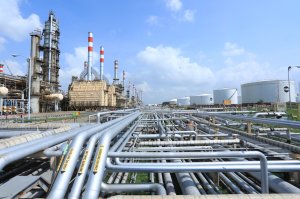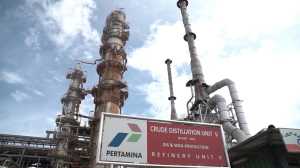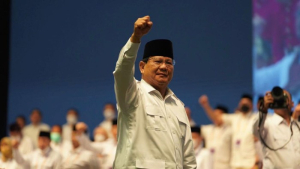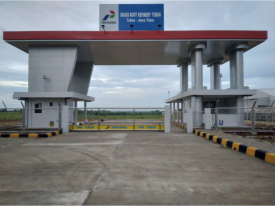Kilang Pertamina International to build largest oil refinery in Balikpapan by 2025
Indonesia is set to have the largest oil refinery with a capacity of 360,000 barrels per day (bpd) by 2025. This refinery is part of the mega Refinery Development Master Plan (RDMP) project in Balikpapan owned by PT Kilang Pertamina Internasional (KPI) as a Subholding Refining & Petrochemical of PT Pertamina.
Currently, PT Kilang Pertamina Internasional is pushing for an increase in refinery capacity or revamping the Crude Distillation Unit (CDU) from the previous capacity of 260,000 bpd to 360,000 bpd.
CEO of PT Kilang Pertamina Internasional (KPI), Taufik Aditiyawarman, said that besides increasing the refinery's capacity, this project aims to improve the quality of fuel to meet Euro 5 standards.
With Euro 5 standards, sulfur content will be reduced by up to 99 percent from the current 2,500 parts per million (ppm) to 10 ppm.
"In 2025, the refinery in Balikpapan will produce Euro 5 quality products, meaning sulfur content will be at 10 ppm," Taufik said on Thursday, March 21, 2023.
This year, Taufik targets the completion of two major milestones in the RDMP Balikpapan mega project. The first milestone is the increase in refinery capacity or revamping the CDU.
"God willing, by the end of April, this will be completed, so we can start additional production in May," he said.
The next milestone is the construction of the Residual Fluid Catalytic Cracking (RFCC) unit to enhance the refinery's profitability by processing residues into high-value products in the Balikpapan Refinery. This project is expected to commence operations this year.
"This means all our processing for gasoline, gas oil, LPG, and polypropylene will be improved. That's the second milestone," Taufik said.
It's important to note that the RDMP Balikpapan project is an expansion project of the existing Balikpapan oil refinery. Once completed, RDMP Balikpapan will be the largest oil refinery in the country, surpassing the capacity of the Cilacap Refinery, which is currently the largest.
Currently, the Cilacap Refinery processes 345,000 barrels of oil per day (bpd). Meanwhile, the Balikpapan Refinery will be able to process crude oil up to 360,000 bpd.
With this crude oil processing capacity, the refinery will produce 319,000 barrels of petroleum products per day, including LPG and petrochemicals such as propylene, which is a raw material for plastics.
Tag
Already have an account? Sign In
-
Start reading
Freemium
-
Monthly Subscription
30% OFF$26.03
$37.19/MonthCancel anytime
This offer is open to all new subscribers!
Subscribe now -
Yearly Subscription
33% OFF$228.13
$340.5/YearCancel anytime
This offer is open to all new subscribers!
Subscribe now






